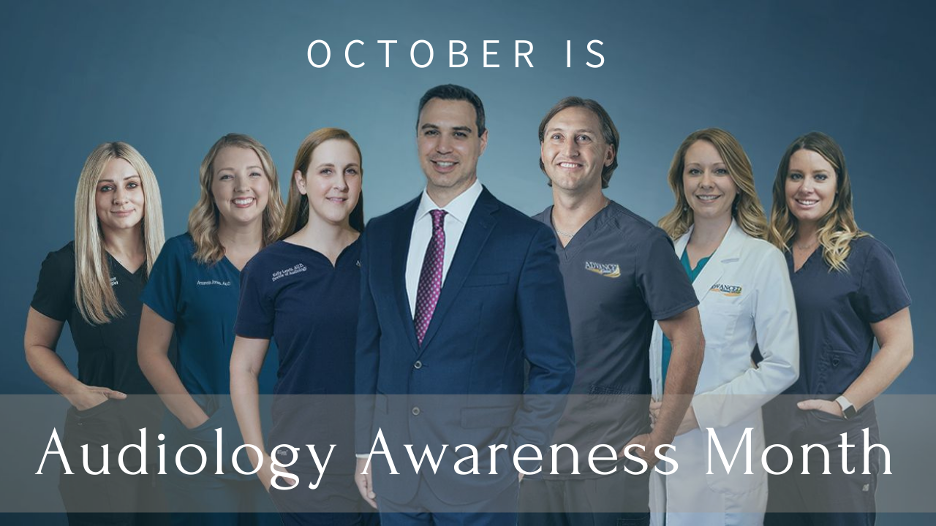
Happy October! Not only is it time for fall decorating, Halloween plans, and everything Pumpkin Spice … it’s also Audiology Awareness Month. Along with other hearing professionals across the country, we’re taking this time to educate people on hearing issues and how audiology can help. Let’s get started and see how much you know!
What is audiology?
If you guessed that audiology is the study of hearing, you would be right! But, it doesn’t stop there. Audiology also includes the study and treatment of balance disorders, which makes sense because balance is affected by inner ear function.
Although the term ‘audiology’ wasn’t even used until 1946, the idea behind it has been around for a very long time. As far back as 1550 BC there is evidence of the first medical journals (aka ‘scrolls’ at that time!) discussing hearing loss, its causes, and treatment. How effective that ‘treatment’ was, we’re not quite sure. But, we’re certainly glad that modern treatment methods have been proven to improve quality of life for the millions of people suffering from hearing loss today.
Who are audiologists?
The term ‘audiologist’ is used to describe a medical professional who uses a combination of science, technology, creativity, and a heartfelt care for others to treat hearing and balance disorders. You might picture an audiologist as someone who fits your grandmother for a hearing aid. But, did you know that audiologists treat patients of all ages and backgrounds, from infants to the elderly? In fact, many hearing disorders can now be detected earlier than ever, thanks to newborn hearing screening.
What does an audiologist do?
We already mentioned that audiologists treat hearing and balance disorders. Before they can do that, however, they have to assess their patient and determine the correct diagnosis. Common diagnostic procedures include:
- Oto-acoustic emissions testing
- Hearing tests (online or in-person)
- Middle ear testing
- VNG/ENG testing (for balance disorders)
Once a diagnosis has been made, it’s time for the audiologist to determine the best course of treatment. There is no ‘one size fits all’ approach … they must work very closely with each patient to find out what will work the best for their individual situation, lifestyle, and budget. Possible recommendations might include:
- Hearing aids
- Assistive listening devices
- Hearing protection to combat noise-induced hearing loss
- Tinnitus treatment
- Professional earwax removal (yes, too much earwax can affect hearing!)
Audiology awareness starts with YOU
So there you have it … a basic description of the field of audiology and what an audiologist does. The bigger question, however, is what audiology can do for YOU. Or, maybe you have a loved one with hearing loss that you’d like to help. Either way, schedule an appointment at any of our offices and our friendly audiologists will be happy to introduce you to the world of hearing well to live well!


